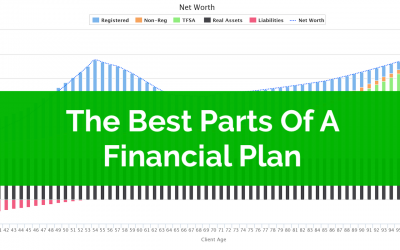Thank you for subscribing!
We can’t wait to send you our next post, you’re going to love it! In the mean time, check out our free resources.
Check out our latest blog posts…
Is Asset Location Really Necessary?
Asset location is the idea that certain assets are more tax efficient when held in certain types of accounts. Different assets classes, and more specifically different types of income, are taxed differently in Canada. Dividends are treated differently than capital gains which are treated differently than interest income. Even certain investments inside “tax free” accounts like the TFSA and RRSP can sometimes lose money to taxes but many people may not realize this.
When you’re just starting out you might hold bonds/fixed income, Canadian equities, US equities, and global equities all in one account (probably the TFSA if you’re just starting out). When you’re just using one account, asset location is less of a concern, but once you start to use a second account (maybe an RRSP), then you may want to ensure you have the right asset in the right place to minimize the drag of taxes.
This becomes especially important after you’ve maximized your TFSA and RRSP and have started to use a non-registered account. Non-registered investments are fully taxable at your marginal tax rate so it’s a good idea to put the most tax efficient investments inside your non-registered account.
Taking advantage of an asset location strategy requires a bit of work. Rather than having the same asset allocation in each account (which is super easy to manage), it means having different assets in each account and managing asset allocation across the entire portfolio.
How much money do you need to have in non-registered assets before asset location adds value? $50,000? $100,000? $500,000? $1,000,000? Let’s take a look…
The Best Parts Of A Financial Plan
Financial planning is a fascinating process. When building a financial plan there are equal parts of finance (math, numbers, money etc), and personal (values, goals, risk aversion etc). This makes every financial plan unique. No two financial plans are the same. Even when two people start with the exact same income, assets, debt and expenses, the fact is their plan will differ because they have different goals and personal values.
Even though the plan may differ, there are certain parts in a financial plan that never change. There are net worth projections, income projections, cash flow planning, income and expenses etc etc.
In this post, I’m going to highlight some of my favorite parts of a financial plan. These are what I would consider to be the best parts of a financial plan, the most interesting, the best of the best. But it doesn’t represent everything. There are many great parts of a financial plan and the “best” part can differ from plan to plan.
For example, we won’t talk about government benefits below, but for many households, especially those with children under the age of 17, government benefits play a big role in their financial plan. We recently did a plan for a young family where a few small changes allowed this family to reduce their income tax and increase their government benefits by $100,000+ over the course of their plan! That would definitely be the best part of that plan!
What we will cover in this post are net worth projections, debt payoff plans, planning around different income sources, and how we understand the “success rate” of a plan.
How To Manage Money… Made Easy
Managing money is an important life skill. Whether you’re a few years into your first job, or a few years away from retirement, do it well and your financial stress will disappear. Do it poorly and you’ll probably find yourself in a difficult situation more often than not.
The problem is we were never taught how to do this! We were never told how to manage our money. We were never told how to budget, how to pay bills, how to invest, or how to save.
We were never taught about best practices like emergency funds or automated investment plans.
Some of us may have been lucky enough to have a parent or older sibling who was good with money. We were able to learn by watching them manage their money. But because money is so secretive, its often hard to see what they were actually doing on a day-to-day basis.
This post will cover a few of the best practices, the best money management tips, and the best ways to manage your money.
If you’re reading this post my guess is that you’re probably already doing some of these things, or maybe all of them! But you might find something new to add to your financial routine. Something to make it stronger and easier to manage in the future.



